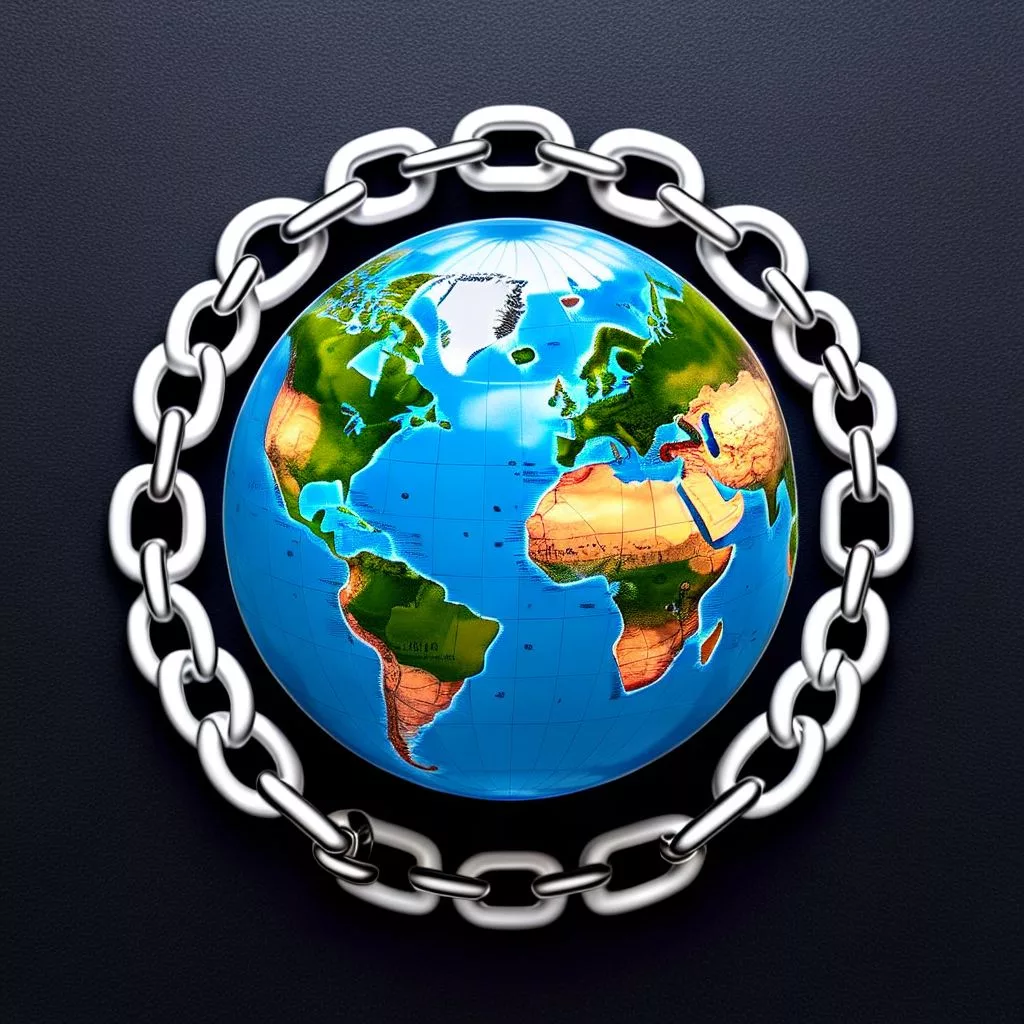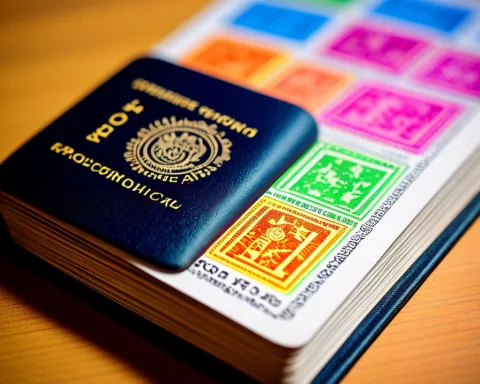The 2025 U.S. Visa Waiver Program allows people from 40 countries to visit the U.S. for up to 90 days without a visa, making travel easier. However, it leaves out many African nations, sparking conversations about the reasons behind these exclusions, like security concerns and diplomatic ties. With changes in the U.S. political landscape, particularly under Donald Trump, strict immigration policies have made it harder for African countries to join the program. Despite these challenges, some African nations are improving their global mobility, suggesting that with better relationships and policies, the door could open wider for them in the future. Overall, the program reflects the complex dance between travel freedom and national safety, emphasizing the need for more inclusive international agreements.
What is the 2025 U.S. Visa Waiver Program?
The 2025 U.S. Visa Waiver Program allows citizens from 40 nations to visit the U.S. for up to 90 days without a visa. While it simplifies travel, notable exclusions, especially from Africa, highlight ongoing geopolitical challenges and the need for improved diplomatic ties for broader inclusion in the future.
Examining the Visa Waiver Program’s Scope and Limitations
The 2025 Visa Waiver Program list, recently released by the United States, has become a major talking point globally. It permits citizens from 40 nations across Asia, Europe, and the Middle East to visit the U.S. for up to 90 days without needing a visa. This initiative is designed to simplify travel and strengthen international bonds. Yet, its exclusion of countries from the African continent continues to generate discussions regarding the criteria driving these decisions. Notably, the list remains largely unchanged, except for the addition of Romania, which underscores an enduring diplomatic paradigm.
African countries like Nigeria, South Africa, and Ghana remain absent from the waiver list, a recurring issue that raises questions about the factors at play. Analysts often point to immigration violations, security concerns, and economic instability as significant hurdles. Additionally, complex diplomatic ties between the U.S. and African countries further exacerbate the situation. According to Business Insider Africa, the rejection rates for U.S. visas among African applicants are on the rise, reflecting these underlying issues.
While the program aims to streamline travel, its exclusionary nature regarding African nations highlights broader geopolitical and economic dynamics. The ongoing absence of these countries draws attention to the multifaceted criteria that govern such international agreements, emphasizing the need for a more nuanced approach to global mobility and cooperation.
Political Climate and Immigration Policies: Challenges and Consequences
In recent years, the political landscape in the United States has undergone significant transformations, especially with Donald Trump’s return to the presidency. His administration has prioritized strict immigration controls and increased deportation efforts, impacting individuals from Africa and Latin America disproportionately. These policies have set a challenging stage for diplomatic negotiations and discussions around immigration, making it difficult for African nations to gain inclusion in the Visa Waiver Program.
The impact of these restrictive policies reverberates through diplomatic circles and affects international relations. African nations find themselves at a disadvantage, as stringent immigration laws pose barriers to achieving entry into such influential programs. This situation underscores a complex interplay between domestic policies and international relationships, which continues to shape the landscape of global mobility initiatives.
Despite these hurdles, there is an ongoing dialogue about the potential for change. Efforts to address the root causes of visa rejections and improve bilateral relations could pave the way for more inclusive travel agreements. This evolving political and diplomatic context holds the promise of fostering a more cooperative international environment in the future.
Positive Developments and Future Prospects for African Nations
Amidst these challenges, some African countries are making strides in enhancing their global mobility. South Africa, for instance, has improved its passport ranking to 47th on the Henley Passport Index, a positive sign despite a slight decrease in visa-free destinations from 106 to 104. Additionally, South Africa is introducing a group visa initiative targeting Indian and Chinese travelers, aiming to bolster tourism and economic connections. Such initiatives may serve as a foundation for future inclusion in programs like the U.S. Visa Waiver.
Historically, visa waiver programs have mirrored international relations and security policies. They have evolved from post-World War II efforts to rebuild Europe into instruments promoting global partnerships and growth. Currently, these programs reflect the complexities of globalization, balancing national security with economic and political interests. The potential for African nations to join the Visa Waiver Program hinges on addressing these multifaceted challenges and fostering stronger diplomatic ties.
The story of the Visa Waiver Program extends beyond policy—it represents a modern means of cultural exchange. Much like the Renaissance and Enlightenment eras demonstrated, cross-cultural interactions can drive significant societal shifts. The program enables people from different backgrounds to share ideas and innovations, highlighting the need for ongoing dialogue and reassessment to ensure inclusivity.
Personal Narratives and the Human Impact of Policy Decisions
Individual stories provide a window into the human impact of these policies. Take, for instance, a Nigerian entrepreneur eager to attend a tech conference in Silicon Valley. Visa restrictions posed significant hurdles, underscoring how restrictive policies can stifle innovation and limit cross-cultural collaboration. These personal accounts highlight broader issues within immigration discourse and emphasize the need for more inclusive travel policies.
Despite obstacles, stories of resilience and adaptation abound. Communities across Africa continue to find creative solutions to overcome barriers, whether through virtual collaborations or regional partnerships. These efforts demonstrate the determination to foster connections and drive growth, even in challenging circumstances.
As international travel and immigration continuously evolve, influenced by geopolitical shifts and technological advancements, programs like the Visa Waiver remain crucial. They embody a delicate balance between openness and security, collaboration and caution. A more inclusive approach to global travel policies is essential to unlock opportunities and build a cooperative global community.
Reflections on Global Mobility and Future Directions
From vibrant cities like Lagos to innovation centers in Johannesburg, Africa brims with potential. The exclusion from programs like the U.S. Visa Waiver highlights the need for a more inclusive approach to international travel policies. Addressing visa rejection causes and building stronger diplomatic ties could open doors for African nations in the future.
In conclusion, the 2025 Visa Waiver Program list offers insight into current global relationships and priorities. While it facilitates travel for many, it also underscores the work needed to bridge divides and foster equitable international exchanges. As the world becomes more interconnected, thoughtful and inclusive policies are paramount. They promise to unlock opportunities and contribute to building a more cooperative global community.
“`markdown
FAQ on the 2025 U.S. Visa Waiver Program
What is the 2025 U.S. Visa Waiver Program?
The 2025 U.S. Visa Waiver Program allows citizens from 40 countries to visit the U.S. for up to 90 days without a visa. This initiative simplifies international travel and aims to strengthen diplomatic relationships, but it notably excludes many African nations, raising discussions about the underlying geopolitical factors.
Why are many African countries excluded from the Visa Waiver Program?
Countries like Nigeria, South Africa, and Ghana remain absent from the Visa Waiver list due to concerns associated with immigration violations, security issues, and economic instability. Additionally, the U.S.’s complex diplomatic relations with these nations further complicate their chances of inclusion.
How has the political climate in the U.S. affected the Visa Waiver Program?
The political landscape, especially under Donald Trump’s presidency, has seen a rise in strict immigration policies, which disproportionately affect African nations. Such policies create significant barriers to diplomatic negotiations regarding inclusion in programs like the Visa Waiver Program.
Are there any positive developments for African nations regarding global mobility?
Yes, some African countries, such as South Africa, are actively improving their global mobility. For instance, South Africa’s passport ranking has risen, and initiatives like group visas for tourists from India and China are attempts to bolster international connections, potentially paving the way for future inclusion in programs like the U.S. Visa Waiver.
What does the exclusion of African countries say about international relations?
The ongoing exclusion of African nations from the Visa Waiver Program highlights the complex interplay between immigration policies, national security, and diplomatic ties. It points to the need for a more nuanced understanding of global mobility that considers the historical and geopolitical context of these relationships.
How can the Visa Waiver Program be improved for inclusivity?
Addressing the root causes of visa rejections and building stronger diplomatic ties are crucial steps toward a more inclusive Visa Waiver Program. Engaging in ongoing dialogue to reassess the criteria for participation could help create a more equitable framework for global travel, allowing for greater cultural exchange and collaboration.
“`









